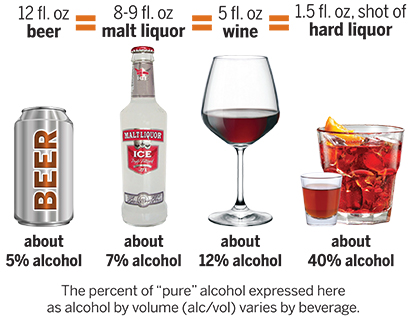Having Fun and Playing it Safe
UT Austin offers a lot of opportunities for fun and socializing. Some Longhorns choose to drink alcohol as part of their experience at UT, but not all Longhorns do. In fact, 81% of UT students report having zero to four drinks during their last social event according to UT’s 2022 National Social Norms Center Survey.
Longhorns can prevent harm related to alcohol use for themselves and others by:
- Planning ahead
- Making mindful decisions around substance use
- Setting limits around alcohol and drug use
- Eliminating risks where possible
Strategies for Having Fun and Playing It Safe
There are many ways that you can reduce your risk if you choose to drink. The more strategies you use, the more likely you are to prevent harm related to drinking, such as alcohol overdose, injury, memory loss, harm to self and others, hangovers and legal issues, as drinking is illegal for those who are under the age of 21. UT students report using the following strategies if they choose to drink:
- Choose safe and familiar settings in which to drink and drink with people that you trust.
- Have a plan to get home safe.
- Set a limit and stick to it.
- Count your drinks.
- Know the recovery position and how to respond to alcohol overdose.
- Practice saying "no thanks" and "no more".
- Eat before and while drinking.
- Alternate alcoholic with non-alcoholic drinks.
- Avoid drinking while taking medications, whether prescribed to you or not.
- Mix your own drinks or know exactly what's in them.
- Pace drinks to one or fewer per hour.
- Avoid mixing alcohol and energy drinks. Alcohol is a depressant and slows the functions of the brain. Caffeine is a stimulant that can increase alertness. Combining the two can lead to a “wide awake drunk,” where individuals mistakenly conclude that they can continue drinking or perform tasks such as driving.
Understanding Standard Drink Sizes
A "standard" drink is any drink that contains about 0.6 fluid ounces or 14 grams of pure alcohol. Below are different drink sizes, each containing approximately the same amount of alcohol and counting as a single standard drink.

- A standard drink refers to one 12-oz. beer or hard seltzer, one 5-oz. glass of wine, or one 1.5-oz. shot of hard liquor.
- Consider cup size when factoring number of drinks consumed. For example, a red solo cup holds 16-oz., so a full cup of beer would correspond to 1.33 standard drinks. Use this Drink Size Calculator to learn how many standard drinks are in various beverages and sizes of containers.
Binge Drinking
Binge drinking, or high-risk drinking, is a pattern of alcohol consumption that brings blood alcohol concentration (BAC) to 0.08% or higher. This typically corresponds to a person drinking 4-5 or more drinks in about 2 hours. Binge drinking puts the drinker and others around them at risk of negative consequences such as alcohol overdose, injury, health problems, drinking and driving incidents and/or alcohol dependence. When making decisions about drinking, take precautions and make informed decisions to reduce the likelihood of harm for yourself and those around you.


